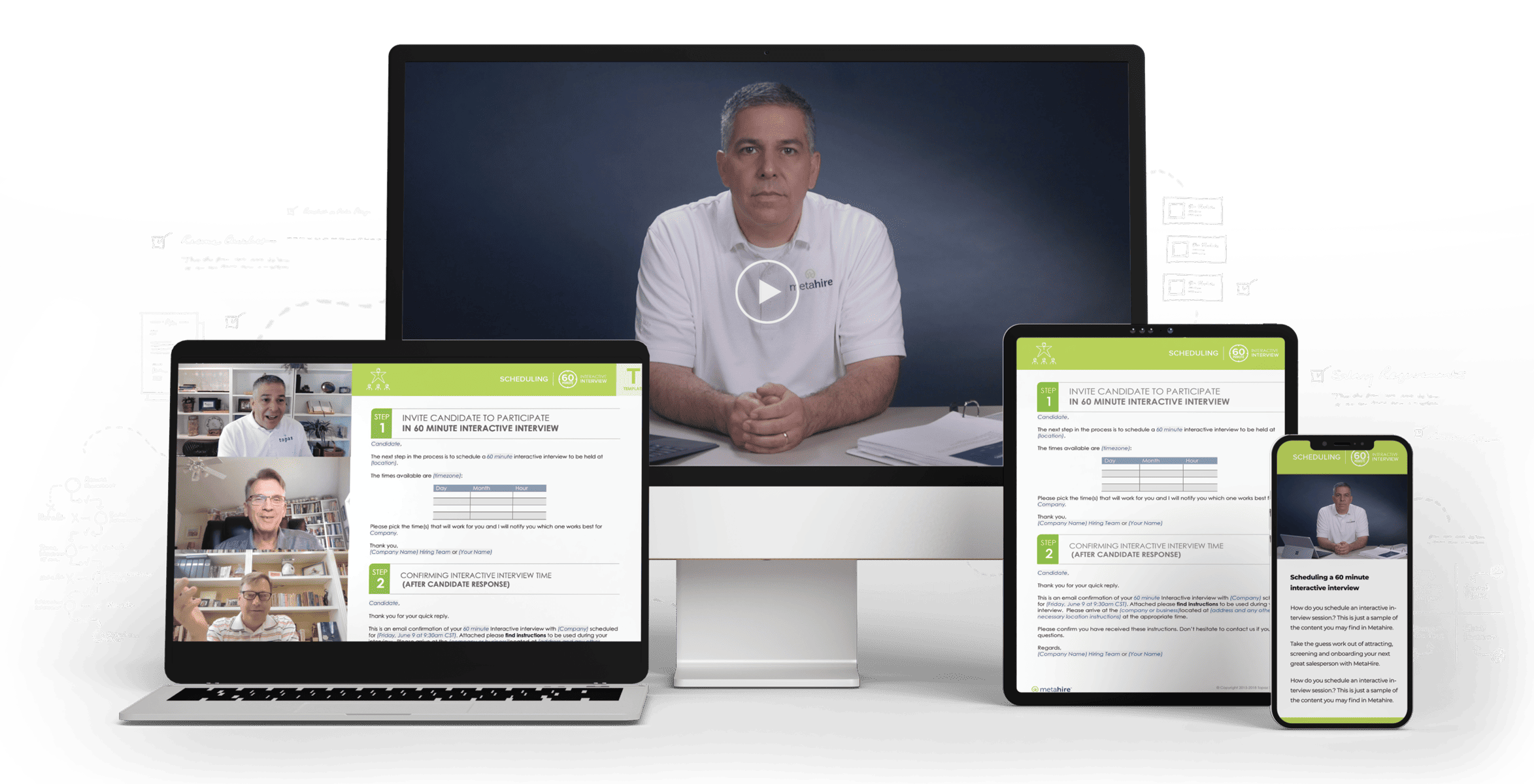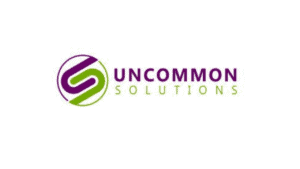It’s no mystery that one of a salesperson’s best skills is their ability to connect with their audience, tell them what they want to hear, and overcome objections, making them excellent interviewees. While this doesn’t apply to all sales candidates, many tend to skate by the average recruiter or sales manager during the sales hiring process because of their gift of gab, not because of an actual culture fit, the right sales skills, their coachability, or overall professionalism.
Because sales candidates are better than ever at navigating a standardized interview process, it’s that much more important these days for your company to create a dynamic, customized, and repeatable sales hiring process to weed out bad fits. That’s how you uncover incompetencies in sales hires, after all.
Topaz Sales Consulting is here to help. In today’s post, we’ve put together a list of some of our favorite interview questions that we’ve proven to be effective at evaluating applicants, testing their abilities, and getting the cream of the crop to rise to the top.
Here are ten essential questions to ask during a sales interview, no matter what level of experience you’re looking to hire for your vacant sales role.
1. Why are you searching for a new job?
This seems like such an obvious question, but you’d be shocked how many businesses omit this as part of their standard sales hiring interview questions. They don’t dig deeper to ask why are you switching?
When interviewing a candidate, you need to fully understand what pain they’re experiencing in their current job so you can avoid making the same mistakes with them. Furthermore, if they’re uncomfortable discussing this topic with you during the sales interview process, imagine how difficult it will be to have honest conversations with them after bringing them onto your team.
There are some right and wrong answers to this question, which may differ for various employers, so ask this question early on to ensure your goals with the candidate are aligned. For example, if your organization’s most successful salespeople are always those who focus on being team players first (including mentoring new salespeople), and the candidate’s primary motivation is to earn more money regardless of who he’s working alongside, then they’re not likely to be a good fit for your organization.
2. What do you know about our company?
The reality of today’s job market is that many candidates rely on portals like LinkedIn, which offers single-click applications, to apply for jobs without even reading the job posting first, let alone doing any research on the company. So by asking this question, you immediately identify candidates who haven’t done any research whatsoever, which should be a ding against the candidate.
The best salespeople are always those who have done their homework and can immediately connect with you and your company personally. So, candidates who can competently tell you about your company, what you do, the value you bring to your clients, and any other publicly available information are likely to be much better salespeople than those who can’t.
Asking candidates if they know anything about your company allows them to demonstrate what they’ve learned and gives you a good sense of whether or not they’ve taken the time to read through your website and familiarize themselves with what you do. If they can tell you how your products or services have helped other companies in your industry from case studies you’ve published, that’s even better.
3. What do you know about this position?
This is like the question above, but probably an even more important one. While many sales positions are similar from one organization to the next, it’s still essential for a candidate to understand the specific duties and responsibilities associated with the job as listed in the job posting. If a candidate can’t tell you what will be required of them in the role, or if they seem to have only a vague understanding of what the position entails, that’s cause for concern.
One little note to consider: revisit your job posting if you notice a pattern of candidates repeatedly not knowing what job duties would look like for the role they’re interviewing for. It might be time to clean things up.
On the other hand, if a candidate has done their homework and can tell you about the challenges they anticipate facing in the role and how they plan to overcome them, that’s an excellent sign. This shows they understand what will be expected of them and are already thinking about how they will fit into your organization.
4. Why did you leave your last job?
There are a lot of possible answers to this question; some are better than others. If a candidate tells you they left because they hated their boss or co-workers, that’s cause for concern. Culture fit is paramount for scaling sales teams, and adding a new salesperson who brings baggage or ill intentions is a recipe for disaster. You don’t want to suffer from the cost of a bad sales hire if you can avoid it.
On the other hand, if a candidate tells you they left because they were looking for a new challenge or an opportunity to learn new skills, that’s much more positive. This shows that they’re proactive and always looking for ways to improve, precisely the type of attitude you want in a salesperson. The more you hear from a candidate that indicates they’re a go-getter, the better.
5. What are your favorite and least favorite parts of a sales job?
This candidate is potentially about to become a part of your team, so it’s vital to get a sense of what motivates them and de-motivates them. If they list things as their favorite parts of the job that are also listed in the job posting (e.g., “meeting new people,” “closing deals”), that’s not necessarily a bad thing. However, if their least favorite parts of the job are also things that are listed in the job posting (e.g., “cold calling,” “entering data in CRM”), that may be cause for concern.
A candidate who loves everything about sales is probably not being completely honest with you, and a candidate who hates everything about sales will probably not be very successful in the role. The best salespeople are usually those with a genuine passion for the profession and a positive outlook on even the most challenging aspects of the job. Try to get the most authentic responses from candidates about this question since you’ll inevitably discover what they love and hate about being a salesperson — or in our words, a Buyer Facilitator.
6. What industries have you sold to?
Depending on your organization’s specialty, this question may or may not be relevant. For example, suppose you’re a small company that only sells to businesses in your local area. In that case, it’s probably not as crucial for a candidate to have experience selling to that specific market. However, if you’re a global organization that specializes in a particular industry, it could accelerate their ramp-up and help them achieve their sales goals quicker. This is a great question to uncover what types of customers they’ve sold to before, what verticals they’ve serviced, and if they’ve only sold to entry-level representatives, mid-management, or if they’ve worked hand-in-hand with company executives.
This question is important because it gives you a sense of how much knowledge a candidate already has about your target market. For example, if they have a lot of experience selling to the same market or industry, they probably already understand the challenges and opportunities associated with that market, the types of objections they may run into, and how to overcome those objections to close more deals eventually. Then they’ll be able to hit the ground running and start selling effectively from day one.
7. Did you sell products or services in your previous role(s)?
Across all industries, there are consistent attributes that describe a successful salesperson. However, the way those attributes are manifested will vary depending on the type of product or service being sold. If you’re hiring a salesperson to sell a specific product or service, you should clarify if they have experience working in your particular vertical, industry, and so forth.
For example, suppose a candidate is selling a complex enterprise software solution. In that case, they need to be able to articulate the features and benefits of that software in a way that is relevant to the buyer and their specific business needs. They also need to be consultative in their approach and be able to address any objections that may come up during the sales process. Conversely, suppose a candidate sells a more commoditized product, such as insurance, pest control services, or office supplies. In that case, they need to effectively manage a high volume of calls or meetings and have a keen understanding of the competitive landscape.
The bottom line is that you need to make sure a candidate has the proper skill set and background for the type of product or service you’re selling. With that in mind, don’t be close-minded to a sales candidate who has only sold one or the other but is interested in making a career switch. If they check other boxes you’re looking for in an ideal sales hire, this could be something you work through and develop with them over time.
Want to stay in touch with the Topaz Sales Consulting team? Subscribe to our quarterly newsletter to hear major updates in the sales and hiring industries.
8. What was your typical sales cycle for a product or service you’ve sold?
For salespeople, there’s nothing more challenging or frustrating than not closing deals. So, if you’re an organization with a long sales cycle and your interview candidate is used to a rapid, short-term sales process, you may have some immediate misalignment on expectations for success. To avoid hiring someone who anticipates early (and frequent) wins, ask them what they’re used to from their previous roles. Then, uncover what they’re expecting from this new role, and if their thoughts align with the realities of the position, you can continue the conversation accordingly.
9. Do you have a sales process, and if so, can you describe it?
Some salespeople possess raw talent, and others have an actual systematic process that they adhere to regardless of their role. If you’re looking for a salesperson who will be consistent in their approach and deliver results time and again, ask them about their process. If they have one, is it congruent with yours? If they don’t have one, that may be a red flag alerting you to ensure they’re coachable before progressing further through your interview cadence.
It would be best if you also inquired about what they learn or accomplish in each step of their sales process, from prospecting to discovery to follow-up to closing. Ask where they learned it and how important it is to them, and you’ll have a much better insight into how they’ll operate within your organization.
10. What motivates you to be successful in sales?
As a sales manager, one of the most critical components of operating a successful sales team is understanding what motivates your reps. Some people are driven by money, others by recognition and still others by the thrill of the hunt. Regardless of what it is, if you can identify it early on, you can play to their strengths and help them be as successful as possible. The best time to identify it, if possible, is during the interview process itself. Please don’t wait until it’s too late to ask what motivates your salespeople. Get to know what motivates your candidates to ensure their motivations match your management style and team culture.
When interviewing sales candidates, ask what has driven their success in previous roles. If they cannot identify anything specific, that may be a reason for concern. This will give you insight into their self-awareness and motivation and help you determine if they’re a good fit for your team and whether or not they were the right hire for you.
Keep Asking Challenging Sales Interview Questions
The best way to ensure you’re hiring top sales talent is to continue asking challenging sales interview questions. By staying sharp and keeping your questions fresh, you’ll weed out the candidates who aren’t a good fit for your organization and find those who have the potential to be your next top performer.
Read our other blog posts for more sales hiring interview best practices, tips, and tricks. Or, if your organization needs sales hiring training, contact us to schedule time with our team to discuss how we can help.







